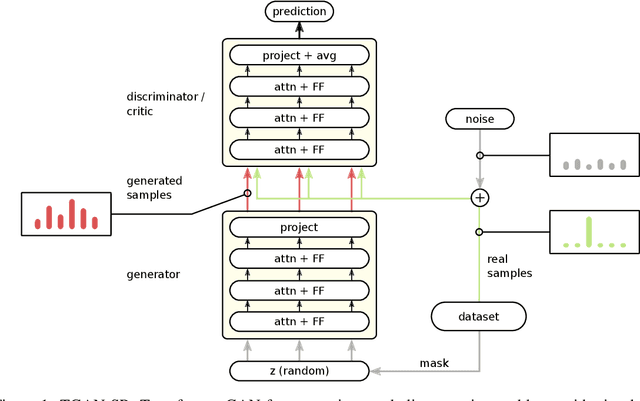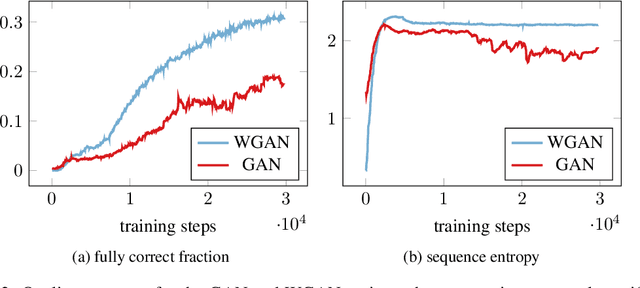Generating Symbolic Reasoning Problems with Transformer GANs
Paper and Code
Oct 19, 2021



Constructing training data for symbolic reasoning domains is challenging: Existing instances are typically hand-crafted and too few to be trained on directly and synthetically generated instances are often hard to evaluate in terms of their meaningfulness. We study the capabilities of GANs and Wasserstein GANs equipped with Transformer encoders to generate sensible and challenging training data for symbolic reasoning domains. We conduct experiments on two problem domains where Transformers have been successfully applied recently: symbolic mathematics and temporal specifications in verification. Even without autoregression, our GAN models produce syntactically correct instances. We show that the generated data can be used as a substitute for real training data when training a classifier, and, especially, that training data can be generated from a real dataset that is too small to be trained on directly. Using a GAN setting also allows us to alter the target distribution: We show that by adding a classifier uncertainty part to the generator objective, we obtain a dataset that is even harder to solve for a classifier than our original dataset.
 Add to Chrome
Add to Chrome Add to Firefox
Add to Firefox Add to Edge
Add to Edge